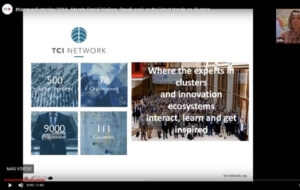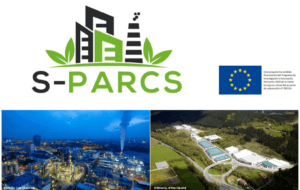
Metals and the forging of metals in the Basque Country have been widespread in our history and currently there are around 250 companies dedicated to forging and pressing in the Basque Country[1].
Today, the Basque metalwork industry is highly interested in innovative techniques that allow the visualisation of metal manufacturing processes and the improvement of component design. Applied, these techniques respond to the need to produce new, lighter components with fewer defects and at a lower cost with better mechanical characteristics.
The SPRI Group, together with the BDIH and its advanced materials node, brings us in this article a series of assets from three of its members, which allow Basque companies to explore, for example, how to use forged steels to comply with their weight reducing strategies, the virtual development of hot and cold forging processes and the optimisation and validation of cold forging component designs.
TECNALIA, offers a differential asset through its advanced metal forming cell for light materials, which allows it to face the technological challenge that new forms of mobility demand through new materials and processes. Light materials with less formability and components with complex geometries, which require advanced forming operations and which in themselves represent a challenge for achieving product quality assurance and process control. The uniqueness of the advanced metal forming cell, allows for the manufacture of prototypes in a preindustrial environment which, combined with the capacities in virtual modelling techniques, enables TECNALIA to transfer complete technology to companies.
Specifically, the services offered from this asset are the following; on the one hand, the development of new metal forming processes and/or the optimization of existing processes, including the characterization of the process-window for new materials, either for stamping, drawing, forging and hydroforming. On the other hand, the design and development of incremental deformation processes by rotation, such as rotary forging, to obtain near-net-shape geometries and, finally, the design and development of hybrid processes through a combination of deformation technologies, for an efficient and more sustainable product manufacturing.
From the University of Mondragon, there is a 4000 kN (Kilonewtons) servo-mechanical press , which allows feasibility studies of semi-solid or thixoforming forging and forming processes. The value of these services lies in the freedom it provides in the design of the mould and the production speed it allows, as well as a quality and mechanical properties superior to those provided by other types of techniques.
At TKNIKA, and its laboratory for the validation and optimisation of cold forging processes, we have the capacity to carry out semi-industrial tests so that the results are comparable with real production conditions. This asset offers 4 types of services: the analysis of the behaviour of lubrication systems in cold forging processes; the study of the forging of different materials; the modelling of cold forging processes; and the validation of complex cold forging operations.
The solutions presented in this article are a sample of how the BDIH’s advanced materials node and its numerous assets and specialised equipment, allows processing companies to adapt their processes to technologies with greater added value, and which are more efficient both in terms of energy and economy and in terms of the materials used.
If you are interested in deepening your knowledge of what the Advanced Materials Node of the BDIH offers, follow this series of articles on Materials 4.0 where we tell you in detail which are the capacities, assets and services of the node in a practical, applied way.
And contact the BDIH to find out how we can bring your company closer to the solutions that interest you most.
[1] Establecimientos en la C.A. de Euskadi por CNAE-2009 (2550 Forja, estampación y embutición de metales; metalurgia de polvos) y periodo 2019 https://www.eustat.eus/banku/id_3452/indexLista.html
 3 December, 2019
Infrastructures
3 December, 2019
Infrastructures
 25 September, 2019
Infrastructures
25 September, 2019
Infrastructures
For SMEs, for diversifying markets, internships abroad, international tenders, non-reimbursable subsidies to consolidate exports, subsidies for deployments or specific training in internationalisation.
You’re interested, right?